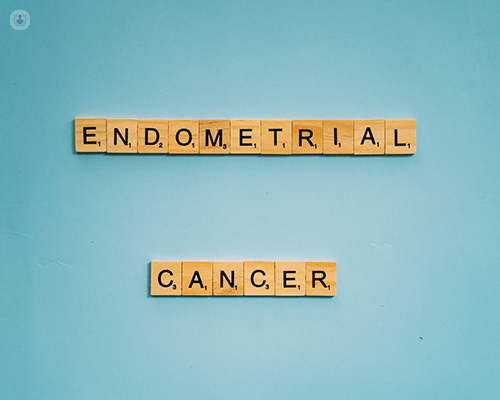Ask an expert: What are the symptoms of endometrial cancer?
Escrito por:In the UK, more than 9,000 people are diagnosed each year with endometrial cancer of the reproductive system.
Here, Dr Natalia Povolotskaya, leading consultant gynaecologist and cancer surgeon, provides an expert insight into endometrial cancer, including risk factors, symptoms, and treatment.

What is endometrial cancer?
Endometrial cancer refers to cancer of the womb (uterus). It is the commonest gynaecological cancer.
The majority of patients with endometrial cancer are women who have gone through the menopause. Despite this, endometrial cancer may also develop in a small number of young women who are in their 30s or even late 20s.
What are the early warning signs of endometrial cancer?
Up to 90 per cent of patients will present with postmenopausal bleeding, which is vaginal bleeding after the menopause. However, only 1 out of 10 patients with postmenopausal bleeding will be diagnosed with cancer. This is not always endometrial cancer; it can be other gynaecological or non-gynaecological cancers. The other 9 out of 10 patients will have a benign explanation for their symptoms.
Young patients with endometrial cancer will present with heavy menstrual bleeding and/or unscheduled vaginal bleeding.
In addition to vaginal bleeding, some patients with endometrial cancer will present with recurrent vaginal discharge. Recurrent watery discharge is a concern.
In the later stages of endometrial cancer, patients will frequently experience pain.
What are the most common risk factors for endometrial cancer?
The main risk factor for endometrial cancer is obesity. The other risk factors are diabetes, polycystic ovary syndrome, some ovarian tumours, tamoxifen use, and oestrogen-only hormone replacement therapy.
As well as this, endometrial cancer can also be genetically-linked in patients with a family history of Lynch syndrome, an inherited condition that increases the risk for various cancers. These include bowel and ovarian cancer. In this case, risk reduction surgery should be strongly considered at an appropriate time of a woman’s life.
What steps can be taken to prevent endometrial cancer?
In patients with unknown or unsuspected genetic conditions, the most important way to prevent endometrial cancer is to keep a healthy weight.
What are the best methods to treat endometrial cancer?
The assessment of patients with postmenopausal bleeding requires a pelvic ultrasound, often followed by a diagnostic hysteroscopy (where a small camera is used to look inside of the womb) and a biopsy of the endometrium (the lining of the womb).
After this, minimal access surgery (laparoscopic or robotic) is the “gold standard” of surgical treatments for endometrial cancer. Some patients will require radiotherapy or chemotherapy.
Around 80 per cent of patients with endometrial cancer will present at an early stage. The majority of them will be cured with surgery alone.
Dr Natalia Povolotskaya is a leading consultant gynaecologist and cancer surgeon with over 20 years’ experience.
If you require expert diagnosis and treatment for endometrial cancer, do not hesitate to book an appointment with Dr Natalia Povolotskaya via her Top Doctors profile today.



